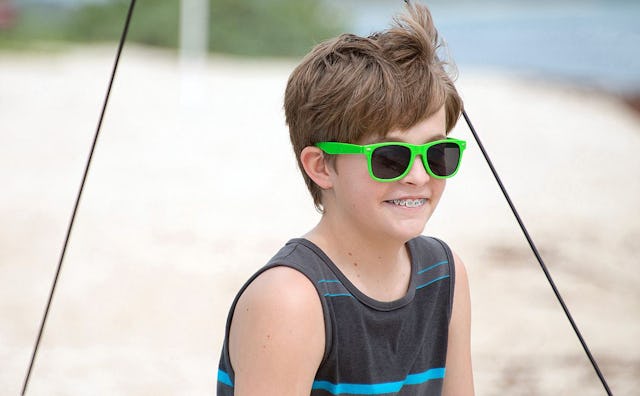I Will Help You Learn To Be A Tween

You begged to be allowed to walk down to an ice cream shop with your younger sister in the small beach town where we were vacationing. “I’m 12 now, Mom,” you pleaded, “almost 13. Come on, please?” After a bit of discussion, your father and I relented. We wanted to let you taste freedom, even if it was just six doors down from where we were sitting. We agreed to let you get an ice cream, put your toes in the sand for a bit and return home.
You were given clear instructions and a return time. You stated you understood our expectations. We trusted you, and as we watched you and your sister stroll off down the street, we remarked to each other that we couldn’t believe the days of letting go had sneaked up on us.
We trusted you, let you go just a tiny bit, and yet, at the appointed return time, you were a no-show. You were late. Very late. So late that we had to walk to the beach to find you, and when we did, we got lame excuses and eye rolling.
And worse, an apology that never came.
Somehow, it was our fault that you were late to return. It was our fault that we were angry and upset. “It was five minutes, ten tops! What’s the big deal?” you asked with the ever-present eye roll.
We talked about trust. About responsibility. About managing your time when you have a deadline or a curfew. We talked about the days in the not too distant future when you’d have more freedoms, freedoms that would only be granted after demonstrated maturity and respect for our rules.
Yet, you stood your ground. “I really don’t think I’m wrong here,” came out of your 12-year-old, amateur mouth. A rookie mistake, indeed. I was both shocked and in awe of your willingness to stand your ground so firmly. It instantly took me back to your oh-so-stubborn toddler years. You went to bed that night refusing to admit fault, much like the nights you were sent to bed early for 3-year-old defiance.
The battle of wills dragged on until the next morning. You, sitting at the kitchen table, sullenly staring at your cereal and exuding tween angst. Me, downing coffee and wondering how it was that I had a child who couldn’t apologize, one who refused to admit his faults. Where had I gone wrong?
And then, it hit me: I haven’t taught you how to say “I’m sorry.” At least, not in a way a tween would understand.
When you were little, I taught you to repeat the words you barely understood when you weren’t sharing or were unkind to another toddler, or when you broke a rule. When you were small, there were time-outs and early bedtimes for bad behavior. You were taught to be sorry with actions, not words, because that’s what toddlers understand, what they need. Toddlers need apologies and contrition demonstrated for them.
But, you aren’t little any longer, my boy.
We are entering new territory for both of us, a minefield of hormones, angst and drama. Your body is changing. Your opinions are forming. Independence is what you crave, but when it’s given to you in small doses, it’s overwhelming, scary and exhilarating. It’s all confusing for me as well, and it feels like we are right back where we started when you were a toddler.
Just as I spent your toddler years tearing out my hair and trying to figure you out, your tween years will be the same. We survived the toddler tantrums, the time-outs, the positive reinforcements and, over time, your toddler self learned. You learned because I taught you how to be a toddler.
As I sit and remember your stubborn 3-year-old cheeks squished into a tantrum, I realize how far we’ve come, that the time-outs actually worked on the 402nd try. Yet, as those same cheeks, now chiseled and acned, look at me over your cereal, I realize it’s time again to start teaching you. It’s time to help you find your way through another phase of childhood.
I will teach you to be a tween.
I will stand my ground. I will be firm, and I will maintain consistency. You will push but I will push back harder. I will make you understand with a firm but patient hand that apologies for bad behavior are necessary. Not irritated, two-syllable utterances of the words, but heartfelt, genuine gestures of apology. You will leave my home being able to properly amend for hurting someone’s feelings.
You will learn the art of the “I’m sorry, I was wrong. What can I do to make it up to you?” way of apologizing, and you will practice it in my home so that scenes like this one at our kitchen table don’t happen when you are in the real world.
But for now, as your hazel eyes look at me across the table and you sheepishly tell me you are sorry, that it won’t happen again, I will accept that from you. We have work to do, Son, but for now, I will simply say, “I know” and wait for the next time.
This article was originally published on